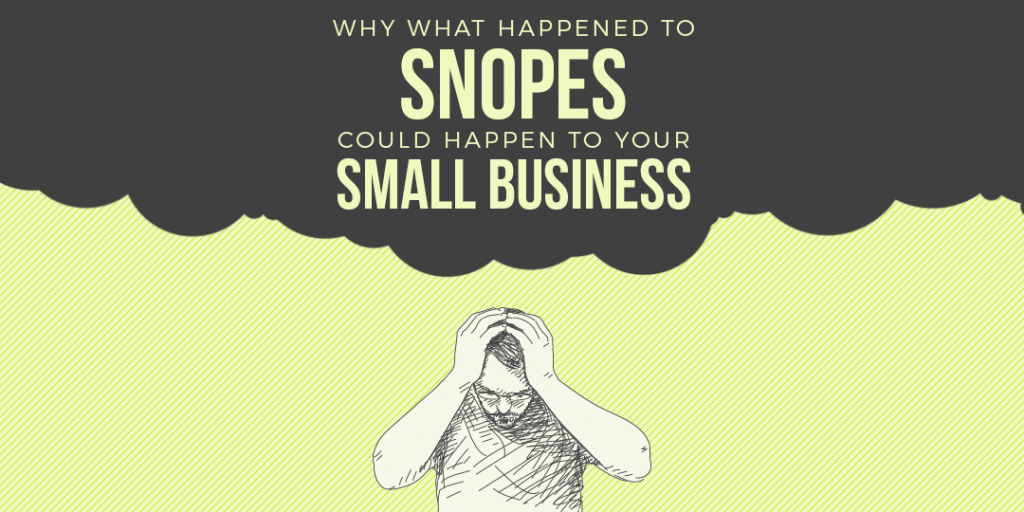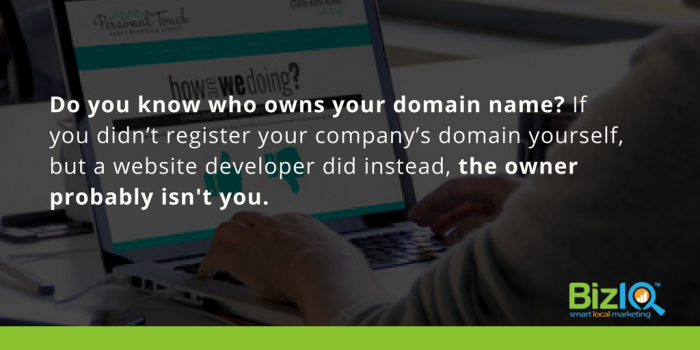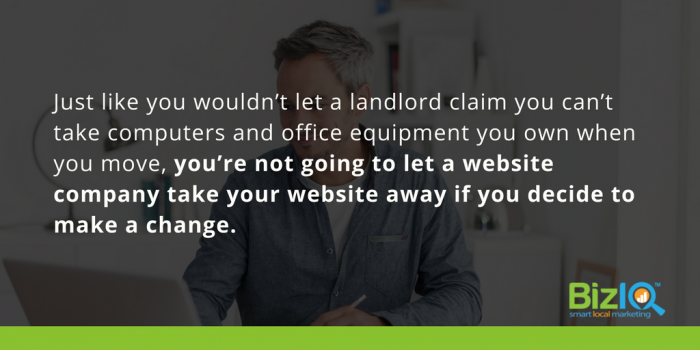Even if you’re not much for spending time on the internet, if you follow the news, you might have heard of a fact checking website called Snopes.com.
Depending on where you get your news, how you feel about this fact checking company might be positive or negative. Considering how these days it’s getting harder to tell what’s fake online and what’s real, it’s understandable if you’re not sure if even fact checking companies can be trusted. Conversely, if you spend a lot of time online, then you’ve seen Snopes evolve from a website created to debunk urban legends to a reliable and detail oriented fact checking company that huge media organizations and individuals rely on as their number one source for what’s true and what’s not when it comes to anything from a politician’s statements on Twitter to whether or not a UFO really landed on somebody’s lawn last night.

But what if I told you that this highly trusted company, known for fact checking everything, has fallen victim to the same problem that many small businesses do? Perhaps your business is in this situation and you don’t even know it. So what is it? What new thing do you need to worry about as a business owner?
Before I answer that question, let me ask you a few more.
- Who owns your company’s website domain?
- Who owns your small business website?
- Do you have access to your website?
- Can you run your own analytics if you want to?
While you’re thinking about the answer to those four questions, let’s go back to what’s going on with Snopes.com.
So What Happened at Snopes?
Like your business, Snopes is also a small business. It was founded in 1994 by David Mikkelson. According to an article from NPR, “its creation was sparked by the fascination David and his wife Barbara took in responding to urban legends that whipped around the ether in the early days of widespread email use.”
Over the years it’s grown from the vision of two people to a small business with a tiny staff of just 13 employees. So Snopes is still a small operation that started out as a family owned and operated business. Because of all the awards it’s received over the years and the media attention it’s been getting lately, it might seem like one of the big media companies. However, it has a lot more in common with your small business than it does with CNN or Fox News.
Now David Mikkelson, the founder of Snopes is in a legal battle with a small digital company, Proper Media, over who owns Snopes.com and over advertising revenue on the website. In a July 27, 2017, interview with NPR Morning Edition‘s Steve Inskeep, Mikkelson claims that his business is now in danger of going under and he can’t pay his operating costs or small staff of 13 people and has had to appeal to the public for help.

Ask These 4 Important Questions to Avoid a Snopes-Level Problem
While there are more complications to his legal battle with Proper Media than those you might face with your website host company or website development company, including complications related to a divorce and who owns the company itself, disputes over domain and website content ownership between small businesses and website companies are more common than you might realize.
Without knowing the exact details of their contract it’s impossible to know exactly what happened, however given that Mikkelson claims he’s unable to take the website content elsewhere, make changes to some elements on the site, and that Proper Media has withheld and delayed analytics reports on advertising on the website makes me think that Snopes made the same mistake you and many other small business owners might have. David Mikkelson was too trusting when he decided to do business with Proper Media.
So how can you as a small business owner avoid the fate of David Mikkelson and Snopes.com? What can you do to keep your website from being held hostage by a website or internet marketing company?
Remember those four questions I asked you to think about towards the beginning of the article? Did you know the answers? Let’s dive into them some more now.
1. Who owns your domain?
If you didn’t register your company’s domain yourself, but a website developer did instead, you probably don’t own your domain. If you’re not sure, you can go here and enter your domain name to do what’s known as a WHOIS search to find out.
A whois search alone might not be enough to find out, however. When I did this for Snopes.com, it shows that whoever registered the domain chose to do so privately, meaning the information is hidden from public view.

If you registered your company’s domain privately, it doesn’t necessarily indicate a problem. You’ll just need to dig a little deeper to find out who the real owner of your domain is. Depending on who you registered your domain through, if they’re not a reputable business they could claim ownership of your domain. They could even sell your domain name to somebody else or demand you pay them a large sum of money to purchase it from them. For that reason alone, it’s worth it to do some extra digging.
2. Who owns your website?
When you hire a company to build you a website or take over your website or do anything to your website, including host your website, you need to make sure that the contract or agreement you’re about to sign states that you own it. Don’t do business with a company whose policy states that since they built or host your website, they own your website and its content, or even that they own parts of your website and its content.
Don’t assume that you can trust a website or digital marketing company with your website files and that they will allow you to retain ownership of any website they host or develop or provide services for. Make sure before you do business with any digital marketing, website hosting, website developer, website designer, SEO service, advertising server, etc that you own 100% of your website, including the code, the design, and the content on your site. If you decide to no longer do business with that company or person, you should be able to take your domain and your website, including all the website files with you when the contract ends.
David Mikkelson claims he terminated the contract with Proper Media but that they refuse to give up any of the files or allow him to access parts of the website. Don’t let this happen to your business.
3. Do you have access to your website?
Did your website developer tell you who hosts your small business website? Do you know how to contact them? You should have that information, and you should not hire anyone who won’t give that to you.
You also should have the website address or URL and a username and password so you can access the CMS (Content Management System) so you can always get to all the files for your website.

If you don’t have login credentials to your own website, what happened to Snopes could easily happen to you. If your former developer has a grudge because you ended or didn’t renew a contract with them, they might hold your website hostage just like Proper Media is allegedly doing with Snopes. Snopes only has limited access to their own website so they can update and add editorial content only.
That’s not good. As a business owner, you want to make sure you have full access to everything on your website and full knowledge of what software, plugins, and templates were used. It’s your brand and your business, so just like you wouldn’t let a landlord claim you can’t take computers and office equipment you own when you move, you’re not going to let a website company take your website away if you decide to “move” to a new company.
4. Can you run your own analytics if you want to?
It’s fine if you hire a company to handle your website analytics for you, but could you run an analytics report on your own if you wanted to or needed to? If you wanted a second opinion on the performance of your site, could you grant access to an individual of your choice? Any analytics on your website should be accessible to you at all times. If you make money from advertising revenue, then those accounts should be yours as well.
If a company you hired uses their account to run analytics, for example, Google Analytics or Google Adsense, and you don’t have access to it, the person who controls that account can delete data anytime. That means data about conversion rates, your advertising revenue, your website’s user friendliness, and much more. Everything can be deleted.
Your business should never do business with a web developer or digital marketing company who won’t provide you access to your Google Analytics. Plus if something like Google Adsense is in your name and not the website company’s name, then you receive the advertising revenue directly. Just like you wouldn’t let an employee withhold proceeds from the sale of a product or service, you wouldn’t let your marketing company withhold advertising revenue from your business either.
So What’s Next for Snopes?
At this point, the fate of Snopes.com is uncertain. The mistakes so many small businesses have made in the past and continue to unknowingly make today, Snopes already made. But you don’t have to make them as well.
Unfortunately for Snopes, and any companies who’ve made similar mistakes, it can be tough to impossible even with lawyers and lawsuits, to get a website back from a company or individual that’s holding it hostage. If you’ve already fallen victim to a fly by night website developer or an unethical digital marketing company whose holding your company’s website hostage as result, you’re probably going to have to start all over with a new domain and completely new website content.
The good news is there are digital marketing companies who won’t hold your website hostage. You should only do business with a company who won’t try to hide anything about your website from you, including website analytics, and the login credentials for the CMS dashboard. Plus if you decide you want to do business with a different company, an ethical digital marketing company will always allow you to take your domain and your website files with you when you leave.
I hope that it all works out for Snopes. I’ve watched the site evolve over the last 20 years. I’d be sad if the company went under. I can only stress to other small businesses out there the importance of following the four tips mentioned above. Most importantly, make sure that you retain ownership and control over all aspects of your business, including your website. Otherwise, what’s happening to Snopes.com could happen to you.









